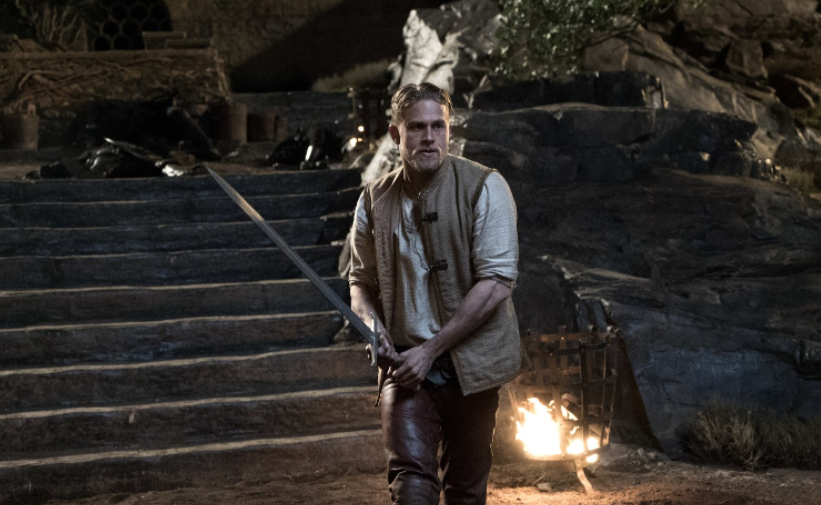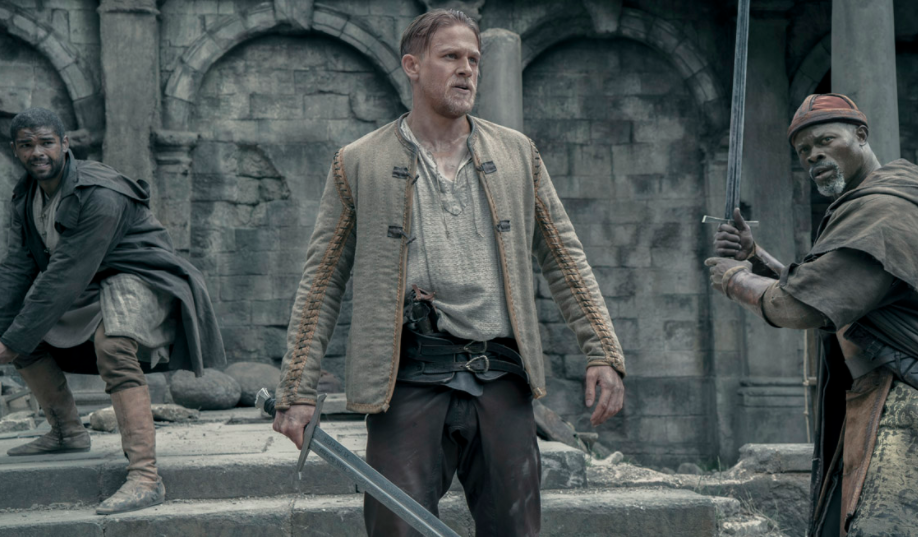In the hands of Guy Ritchie, every protagonist is some form of a ruffian from the streets of London and every film a space for heightened reality. That’s not a criticism, but an observation. Ritchie has now translated two of Britain’s most celebrated literary figures with no regard for the actuality of his source material. Ritchie doesn’t care if Sherlock Holmes and King Arthur are traditionally nothing like the colourful characters from his earlier films, such as the excellent Lock, Stock & Two Smoking Barrels, because that’s what creative liberty is for. Ritchie’s Sherlock Holmes and King Arthur are exactly like the colourful characters from his earlier films. If you can’t bring Guy Ritchie to the source material, Guy Ritchie’s going to bring the source material to him.
This re-imagining of the Arthurian legend does itself a disservice by associating with the legendary leader. Without that connection, the film is an intermittently rousing albeit often dysfunctional fantasy movie. Re-imagining is the wrong word, used here for lack of a better one, since King Arthur: Legend of the Sword has nothing to do with the King Arthur of folklore save a handful of character names. The association will probably arouse bewilderment in anyone with a mild understanding of the legend, frustration in anyone with an appreciation of it and contempt in anyone who understands that this film is only being called a King Arthur movie because Hollywood executives believe that brand recognition will augment audience attendance.

On one end of the creative license scale, Morded, generally acknowledged as Arthur’s illegitimate son, appears in Ritchie’s film in the beginning, as a warlock laying siege to the castle of Arthur’s father, Uthur Pendragon (Eric Bana). On the other end of the creative license scale, there’s a character called Goosefat Bill (Aidan Gillen) and Arthur is trained in combat by an Asian martial artist named George (Tom Wu).
The bond between the two ends of the scale is tenuous. Ritchie’s direction is so spirited that it doesn’t allow for time to digest how each piece of the world correlates to the other. Sometimes that’s a good thing, like in the way that there’s no time to digest the flimsiness of the mythology. Sometimes it’s a bad thing, because there’s so much style that you may begin to crave substance the way one fancies salad after a McDonald’s binge.
Arthur (Charlie Hunnam), the legitimate heir to a throne stolen by his nefarious uncle Vortigern (Jude Law) is raised in a brothel, unaware of his kingly rights. That changes when the water around the royal palace drains, revealing a mysterious sword embedded in a hunk of rock. The sword in the stone is classic King Arthur. War elephants the size of mountains, not so much. Through a series of events that I’m not sure even Ritchie would be able to catch on first viewing, such the frenetic way in which he has assembled this film, Arthur comes to understand his heritage, and develops an appetite for retribution.

If the plot of King Arthur: Legend of the Sword was as energetic as the pace and the style then it might have been one of the most uniquely memorable fantasy films in recent memory. But the film crumbles under the poor foundations that it lays for itself. The spirit begins to wear out its welcome and there’s not much to sustain interest underneath the sheen. The story is painfully tired and the characters only have the performances that convey them to develop themselves, since the writing is thin and the tempo to quick to allow for evolution.